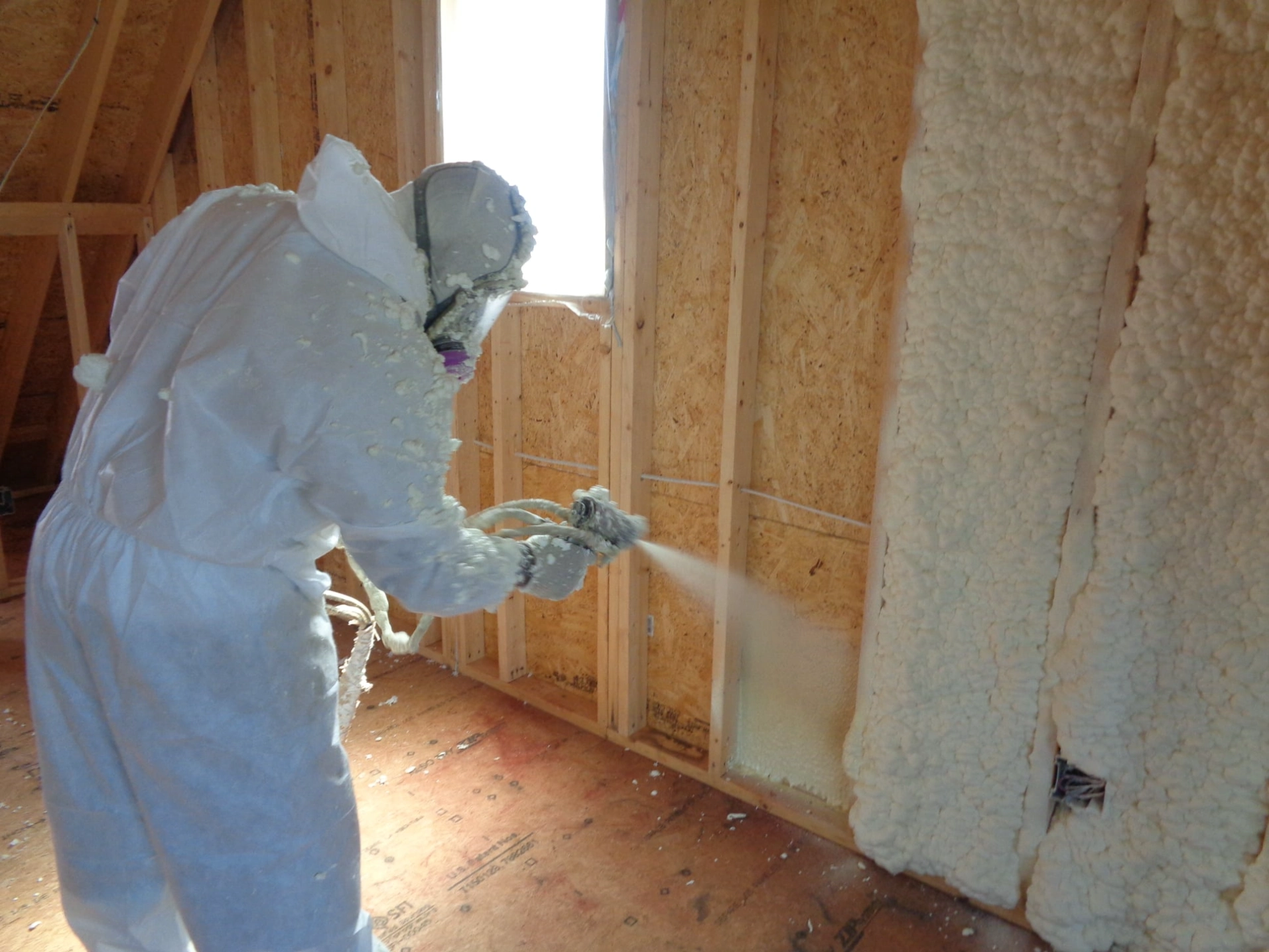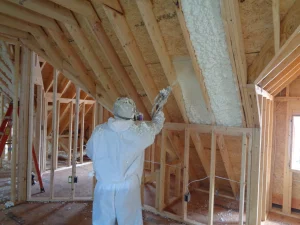Spray foam insulation creates an air and moisture barrier that can significantly reduce mold growth in Deland, FL homes. Mold thrives in environments with excess humidity and organic materials to feed on. By limiting moisture intrusion and controlling temperature fluctuations, spray foam insulation disrupts the conditions that mold needs to grow.
In Central Florida’s humid climate, attics, crawl spaces, and exterior walls are vulnerable to condensation and dampness. Closed-cell spray foam, in particular, provides a high moisture resistance rating, reducing the risk of condensation on interior surfaces. Open-cell spray foam, while more permeable, still blocks air movement that can carry humidity into structural cavities.
This guide details the mechanisms, advantages, and limitations of spray foam insulation for mold prevention, supported by climate-specific data and field installation experience.
How Spray Foam Stops Mold Development
Spray foam addresses mold risk through two main actions:
- Air Sealing: Prevents humid air from entering cooler surfaces where condensation can occur.
- Moisture Resistance: Closed-cell foam provides a vapor barrier; open-cell reduces airborne moisture movement.
Technical Comparison of Spray Foam Types for Mold Prevention
| Feature | Open-Cell Spray Foam | Closed-Cell Spray Foam |
|---|---|---|
| R-Value per Inch | ~3.5 | ~6.0 |
| Permeability | High (perm rating > 10) | Low (perm rating ~1) |
| Vapor Barrier | No | Yes |
| Expansion | High, fills gaps easily | Lower expansion, denser |
| Mold Resistance | Good (limits air movement) | Excellent (blocks air and moisture) |
Why Deland, FL Homes Are at Higher Risk
- Average Relative Humidity: 74% annually (NOAA Data 2023)
- Frequent Rainfall: 51 inches per year
- Temperature Swings: Warm days and cooler nights increase the potential for condensation
These conditions create moisture-prone environments, especially in:
- Attics without adequate sealing
- Crawl spaces with poor ventilation
- Metal buildings prone to surface condensation
Practical Installation Insights
- Install foam directly against roof decking in attics to control temperature and moisture migration.
- In crawl spaces, apply closed-cell foam to block ground moisture.
- For metal buildings, spray foam on the underside of the roof panel reduces condensation and subsequent mold risk.
Bonus Tip: Always pair spray foam with proper drainage and ventilation controls. Foam alone cannot correct bulk water intrusion.
Technical Specs for Mold Prevention Performance
| Specification | Open-Cell | Closed-Cell |
|---|---|---|
| Water Absorption | 5–10% by volume | <2% by volume |
| Compressive Strength | ~0.5 psi | ~30 psi |
| Air Leakage Reduction | 99%+ | 99%+ |
| Application Temperature | 60°F–100°F | 60°F–100°F |
Things to Consider Before Making a Decision
- Existing Moisture Problems: Spray foam will not fix leaks or flooding issues.
- Budget and Longevity: Closed-cell foam costs more but offers longer-term moisture control.
- Access for Installation: Tight spaces may limit application methods.
- Climate Adaptation: In Deland, closed-cell often delivers the best mold prevention performance due to high humidity.
Relevant Services Provided
- Attic Insulation: Prevents heat and moisture buildup under the roof.
- Crawl Space Insulation: Blocks ground moisture and maintains consistent conditions.
- Metal Building Insulation: Reduces condensation on interior surfaces.
- Closed-Cell Spray Foam: Provides an effective vapor barrier for high-moisture areas.
Common Questions Before Choosing Spray Foam
Which type of spray foam is better for mold prevention in Florida?
Closed-cell spray foam is more effective in high-humidity climates because it acts as a vapor barrier.
Can I apply spray foam over existing insulation?
It is not recommended if the existing material is damp or moldy, as it can trap moisture.
Will spray foam stop all mold growth?
It greatly reduces the risk but cannot guarantee elimination if other moisture sources remain.
Summary
Spray foam insulation reduces mold risk in DeLand homes by controlling moisture and limiting condensation. Closed-cell foam offers superior vapor resistance, making it ideal for high-humidity conditions. Proper installation, combined with ventilation and drainage management, ensures long-term effectiveness.
Get Expert Insulation Guidance
For expert insight on preventing mold with spray foam in Deland, FL, contact R-Factor Sprayfoam Solutions at (352) 663-5905 or email [email protected]. Discuss project-specific needs and evaluate which insulation approach works best for your home.
FAQs
How long does spray foam last in humid climates?
When properly installed, spray foam can last 20–30 years without significant performance loss.
Does spray foam attract pests?
Spray foam is not a food source for pests, though they can still nest in nearby materials.
Can mold grow on spray foam itself?
Mold does not typically grow on foam, but it can develop on dust or debris settled on the surface.
Is spray foam safe for indoor air quality?
Once cured, it is inert and does not release harmful fumes.
Do I need a dehumidifier with spray foam?
In high-humidity zones like Deland, a dehumidifier can help maintain optimal indoor moisture levels.



